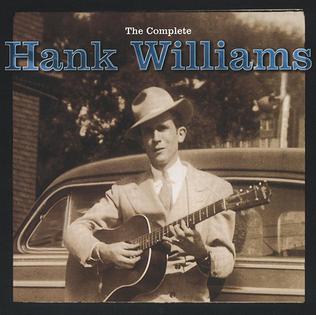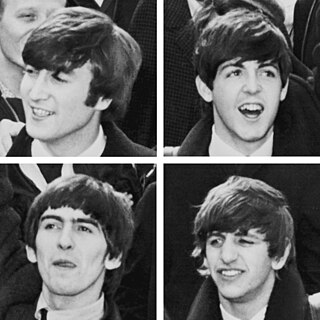
Van and Schenck were popular American entertainers in the 1910s and 1920s: Gus Van, baritone, and Joe Schenck (pronounced "skenk"; born Joseph Thuma Schenck,, tenor. They were vaudeville stars and made appearances in the Ziegfeld Follies of 1918, 1919, 1920 and 1921. They made numerous phonograph records for the Emerson, Victor, and Columbia record companies.

"The Bonnie Blue Flag", also known as "We Are a Band of Brothers", is an 1861 marching song associated with the Confederate States of America. The words were written by the entertainer Harry McCarthy, with the melody taken from the song "The Irish Jaunting Car". The song's title refers to the unofficial first flag of the Confederacy, the Bonnie Blue Flag. The left flag on the sheet-music is the Bonnie Blue Flag.

Collins & Harlan, the team of American singers Arthur Collins and Byron G. Harlan, formed a popular comic duo between 1903 and 1926. They sang ragtime standards as well as what were known as "coon songs" – music sung by white performers in a black dialect. Their material also employed many other stereotypes of the time including Irishmen and farmers. Rival recording artist Billy Murray nicknamed them "The Half-Ton Duo" as both men were rather overweight. Collins and Harlan produced many number one hits with recordings of minstrel songs such as "My Gal Irene", "I Know Dat I'll be Happy Til I Die", "Who Do You Love?" and "Down Among the Sugarcane". Their song "That Funny Jas Band from Dixieland", recorded November 8, 1916, is among the first recorded uses of the word "jas" which eventually evolved to "jass", and to the current spelling "jazz".

"Over There" is a 1917 song written by George M. Cohan that was popular with the United States military and public during both world wars. It is a patriotic song designed to galvanize American young men to enlist and fight the "Hun". The song is best remembered for a line in its chorus: "The Yanks are coming."

"Low Bridge, Everybody Down" is a folk song credited to Thomas S. Allen, first recorded in 1912, and published by F.B. Haviland Publishing Company in 1913. It was written after the construction of the New York State Barge Canal, which would replace the Erie Canal, was well underway, furthering the change from mule power to engine power, raising the speed of traffic. Also known as "Fifteen Years on the Erie Canal", "Fifteen Miles on the Erie Canal", "Erie Canal Song", "Erie Barge Canal", and "Mule Named Sal", the song memorializes the years from 1825 to 1880 when the mule barges made boomtowns out of Utica, Rome, Syracuse, Rochester, and Buffalo, and transformed New York into the Empire State.
Johnston's Motor Car is an Irish rebel song written by Willie Gillespie based on the commandeering in Ulster of a motor car belonging to Henry Maturin Johnston (1851-1932) by the Irish Republican Army (IRA).
"Seventeen Come Sunday", also known as "As I Roved Out", is an English folk song which was arranged by Percy Grainger for choir and brass accompaniment in 1912 and used in the first movement of Ralph Vaughan Williams' English Folk Song Suite in 1923. The words were first published between 1838 and 1845.

"Just before the Battle, Mother" was a popular song during the American Civil War, particularly among troops in the Union Army. It was written and published by Chicago-based George F. Root. It was also a popular song with adherents of the Primrose League in England, and was a central part of Victoria Day celebrations in Canada during the late 19th and early-to-mid 20th centuries.

The Spring Chicken is an Edwardian musical comedy adapted by George Grossmith, Jr. from Coquin de Printemps (1897) by Jaime and Duval, with music by Ivan Caryll and Lionel Monckton and lyrics by Adrian Ross, Percy Greenbank and Grossmith. The story takes place in Paris and Château de Malmaison.

Killaloe is the Regimental Quick March of the British Army regiment, The Royal Irish Regiment. It has informal, historical associations with other Irish Regiments and Brigades: as an unofficial march by the Connaught Rangers and Royal Inniskilling Fusiliers and at brigade level in World War II by the 38th (Irish) Infantry Brigade. Further to this it has also been adopted by the PSNI Pipe Band at passing out parades for new recruits. It is also the regimental march of the South African Irish Regiment.

The Complete Hank Williams is a 1998 box set collecting almost all of the recorded works of country music legend Hank Williams, from his first recorded track in 1947 to the last session prior to his untimely death in 1953 at the age of 29. While a number of live and overdubbed songs are excluded, the ten disc collection contains 225 tracks, including studio sessions, live performances and demos. Among those 225 songs are 33 hit singles and 53 previously unreleased tracks.
Billboard Top Movie Hits is a series of compilation albums released by Rhino Records in April 1996 featuring recordings popularized through their use in movies released from the 1940s through the 1970s. Five albums were released in the series, each containing ten songs from a specified five- or ten-year period.

"Sister Susie's Sewing Shirts for Soldiers" is a World War I era song that tells about a young girl sewing shirts for soldiers fighting abroad. Her efforts are in vain however, as "Some soldiers send epistles, say they'd sooner sleep in thistles, than the saucy soft short shirts for soldiers sister Susie sews."

Bob Miller was an American songwriter, recording artist, A&R representative, and publisher.

The following outline is provided as an overview of and topical guide to the Wikipedia articles available about the Beatles from their formation through their breakup; it does not include information about members solo careers.












